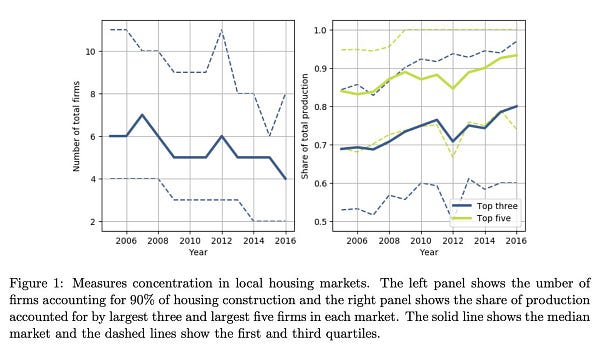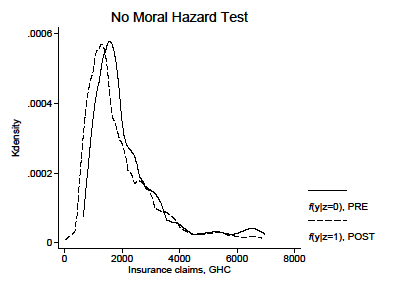Best of #econtwitter - Week of June 12, 2022 [1/2]
Welcome readers old and new to this week’s edition of Best of Econtwitter. Thanks to those sharing suggestions, over email or on Twitter @just_economics.
This is part one of two.
Paper summaries

The disinflation of the early 1980s achieved by Paul Volcker has served as the exemplum of the power of hawkish monetary policy. Our analysis reveals that current inflation, especially core inflation, is considerably closer to previous peaks than in the official series.

^Jeanna Smialek summarizes the paper in the NYT/another thread

The interesting fact is that commercial property transactions disproportionately happen between buyers and sellers of the *same nationality*, regardless of where they occur. These insights are from a comprehensive international dataset tracking all large transactions. 2/9

^“generate[s] a beautiful gravity relation in commercial property flows”

Cosman and @leqonomics find that concentration among housing developers has increased substantially since GFC; from bankruptcy by developers, regulatory shifts, and mergers.
Higher market concentration lowers housing production by $106 billion annually.
papers.ssrn.com/sol3/papers.cf…





In the paper, I study the impact of online instruction on teaching evaluations at a higher education institution in Spain. I show that in the semester when teaching moved online, female lecturers were evaluated more poorly than in previous semesters [2/6]

How severe is moral hazard in developing country insurance markets?
In the auto-insurance market in Ghana, non-parametric evidence from rich admin data implies the costs of moral hazard reach 12% of firm profits.



Can institutions constrain political leaders from enriching themselves?
In Norway, large windfalls to local government revenues from hydropower and petroleum massively boost gov revenue and spending, they have precisely zero effect on personal income or wealth of politicians.

Public goods

I built a little tool – it's called Small World, and it helps you make new friends and stay in touch with old ones: smallworld.kiwi
it's like a Marauder's Map, but for the people you follow on Twitter

1.
🚨NEW DATA PRODUCT🚨
The @ApartmentList Research Team is thrilled to release our newest public dataset. The Apartment List Vacancy Index is a monthly time series tracking the apartment vacancy rate in hundreds of locations across the country.
apartmentlist.com/research/apart…


Hey #econtwitter, @conlon_chris and I just released version 0.13.0 of PyBLP, our Python package for BLP-style differentiated products demand estimation.
Code: github.com/jeffgortmaker/…
Docs: pyblp.readthedocs.io/en/stable/
Paper: jeffgortmaker.com/files/pyblp.pdf
What's new?
1/9

Same offer, new year. Email to reach out and chat with me about your Job Market Paper!

Arpit Gupta @arpitrage
Interesting discussions

I'm collecting mean referee comments to make a point. Please tell me the meanest one(s) you have gotten.
You can reply to this thread or DM me or fill out this Google form: forms.gle/qjY7DXdTzKPVH5…
I may re-post the comments publicly, so be sure you're ok with that.


"Data available upon request" doesn't work. In case you didn't already know that, there's a new study of Biomed Central papers. 1792 manuscripts indicated authors are willing to share their data. 93% either did not respond or declined to share their data.

- The data is available upon request (but not really).
- Little is known about this topic (at least for the first 3 pages of Google Scholar)
- This is a topic for future research (that we already have a working paper on)

"<-" instead of "=" in R is one of those things people do that they literally do not need to (and should not) be doing, since R supports the latter.
Also, writing SQL in all uppercase. People need to stop doing that, too! Literally just write lowercase, nobody's stopping you!

night brain @night_brain_
^we’ll see how many unsubscribers this causes





